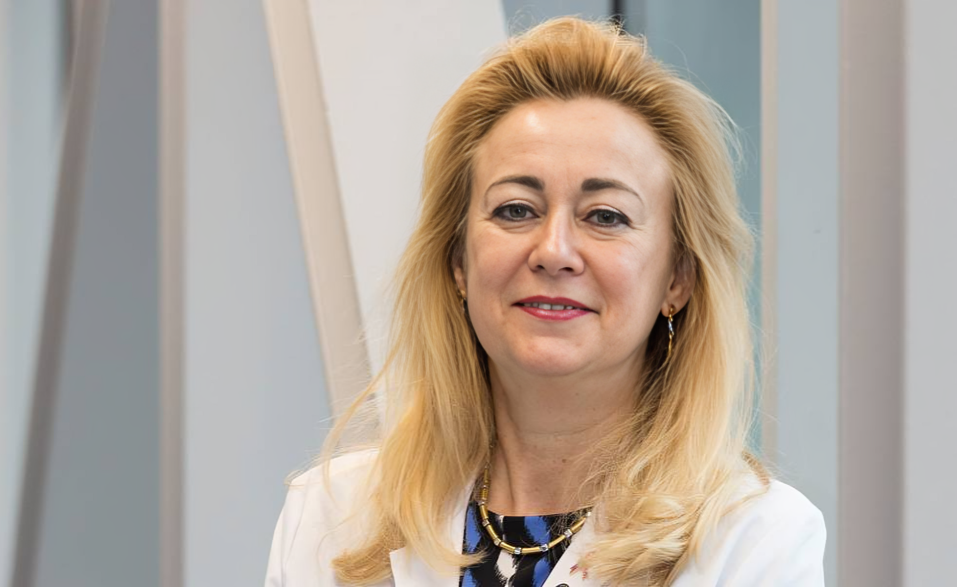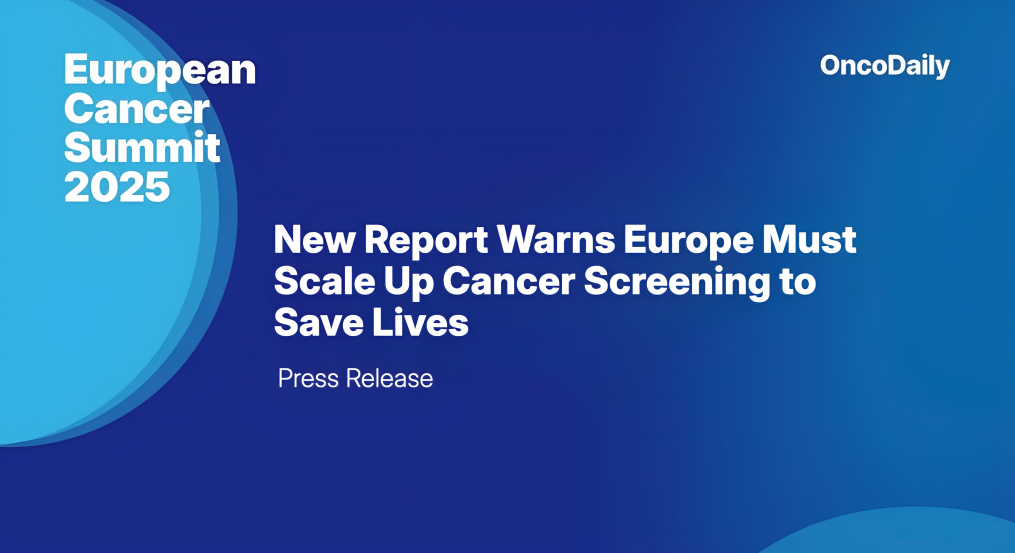During European Cancer Summit 2025 in Brussels, New Report Warns Europe Must Scale Up Cancer Screening to Save Lives.
Major gaps in access, equity and implementation, findings show
An estimated 31% of men and 25% of women in the EU will receive a cancer diagnosis by age 75. Technological advances in cancer screening approaches offer new opportunities for early detection, but a new analysis shows that too many Europeans are not benefiting from well organised and accessible screening programmes.
Thanks to Europe’s Beating Cancer Plan, major advances in cancer screening are being realised. The EU has introduced new recommendations and guidelines and funded a variety of pilot programmes supported at political, technical, and financial levels.
This progress, however, is only part of the picture. Further advances now depend on EU member states. Individual countries must do more to ensure their screening policies reach the people who need them. The latest ECO Screening Index reveals vast disparities across Europe, with policy scores1 ranging from 26% in the lowest raking countries to 91% in the highest-ranking ones, highlighting the urgent need for action.
Over the last two years, the European Cancer Organisation (ECO), working with leading cancer experts and partner organisations, produced Next Level for Cancer Screening: From Commitments to Continued Action for Early Cancer Detection, launched today at the European Cancer Summit 2025.
Nearly five years into Europe’s Beating Cancer Plan, the report calls for more efficient and equitable cancer screening across the EU. Based on expert consultations, real-world surveys, and peer-reviewed evidence, it offers a comprehensive overview of progress and remaining gaps.
The ECO paper identifies precise ways countries need to improve.
- Make better use of EU tools, including detailed guidelines and quality-assurance schemes
- Implement new screening programmes for prostate, lung and gastric cancers, which are already advancing through EU-supported pilot initiatives
- Address social inequalities, as access to screening varies significantly by income, education and place of residence. Countries must ensure screening reaches underserved populations, including rural communities
- Scale up innovative approaches – such as mobile screening units, self-collection kits3 and culturally tailored communication – that have proven effective in expanding participation
Based on these findings, ECO urges EU member states to intensify their efforts and fully utilise the resources made available at the EU level. It also calls on the EU to sustain and expand the initial, life-saving achievements of Europe’s Beating Cancer Plan. Regular monitoring of national efforts — including the creation of a screening implementation report every five years — is essential to track progress and ensure that improvements reach citizens and patients.
Isabel Rubio, president-elect of the European Cancer Organisation, said:
‘To make cancer screening more efficient, equitable, and sustainable, Europe must strengthen cooperation between experts and decision-makers at both national and EU levels. Establishing permanent channels for long-term best-practice exchange through an EU Network of Screening Agencies and expanded best-practice platforms is essential to ensure that every citizen benefits from the best screening strategies.’

Photo of Isabel Rubio taken from cun.es
Luis Seijo, co-chair of the ECO Prevention, Early Detection and Screening Network, said:
‘Inequalities in cancer screening are costing lives. When screening is not organised or accessible, early diagnosis becomes a privilege rather than a right, reserved for those who can afford private checks or travel long distances for medical care. With this report, we call on EU member states to focus attention on screening uptake by researching barriers, running EU-wide awareness campaigns and guaranteeing free access to screening and follow-up care.’

An embargoed copy of the report is available here. To arrange a telephone interview with the lead authors please contact otilia.colceriu@europeancancer.org
Notes to editors
ECO Screening Index: The European Cancer Screening Policy Index is a policy benchmarking tool of the European Cancer Organisation, designed to track and compare national progress in implementing cancer screening policies. Based on selected available data indicators by leading experts, the Index includes its composite scores from factors such as the inclusion of cancer screening in national cancer plans, the existence of cancer screening registries, the implementation status of recommended organised cancer screening programmes and differences in cancer screening participation according to social determinants. More information is available here.
Guidelines and quality-assurance schemes
In support to the EU Council recommendations on cancer screening, the European Commission has established Initiatives on Cancer Screening and Care. Within the framework of these initiatives, evidence-based European guidelines on cancer prevention, screening and diagnosis are developed, alongside European quality assurance (QA) schemes. The latter cover the entire care pathway from screening until end-of live care and translate guidelines into structured sets of operational quality requirements for cancer services. More information is available here.
Self-collection kits
Self-collection of the screening sample by the screened individual provides an alternative to the delivery of cancer screening tests at a healthcare facility. It is relevant to address barriers that some individuals or groups may face in accessing standard facilities, because they live in countries or remote areas with fewer provisions, or have a disability, or where there are cultural barriers or previous traumatic experiences. Self-collection is presently possible for cervical and colorectal cancer screening. More information is available on p.28 of the Next Level for Cancer Screening: From Commitments to Continued Action for Early Cancer Detection report.
About the European Cancer Organisation
The European Cancer Organisation (ECO) is the largest non-profit, multi-professional federation in Europe. It brings together hundreds of different professional societies and patient groups to advocate for more effective, efficient, and equitable cancer care.
About the European Cancer Organisation’s Prevention, Early Detection and Screening Network
The ECO Prevention, Early Detection and Screening Network unites stakeholders to advance policy in three key areas: primary prevention, cancer screening, and early detection. It facilitates consensus-building, aiming to influence public policies and national plans to ensure resilient cancer care systems.
For more information, please contact\
Otilia Colceriu, Communication Officer
otilia.colceriu@europeancancer.org
+32 465 64 25 73


